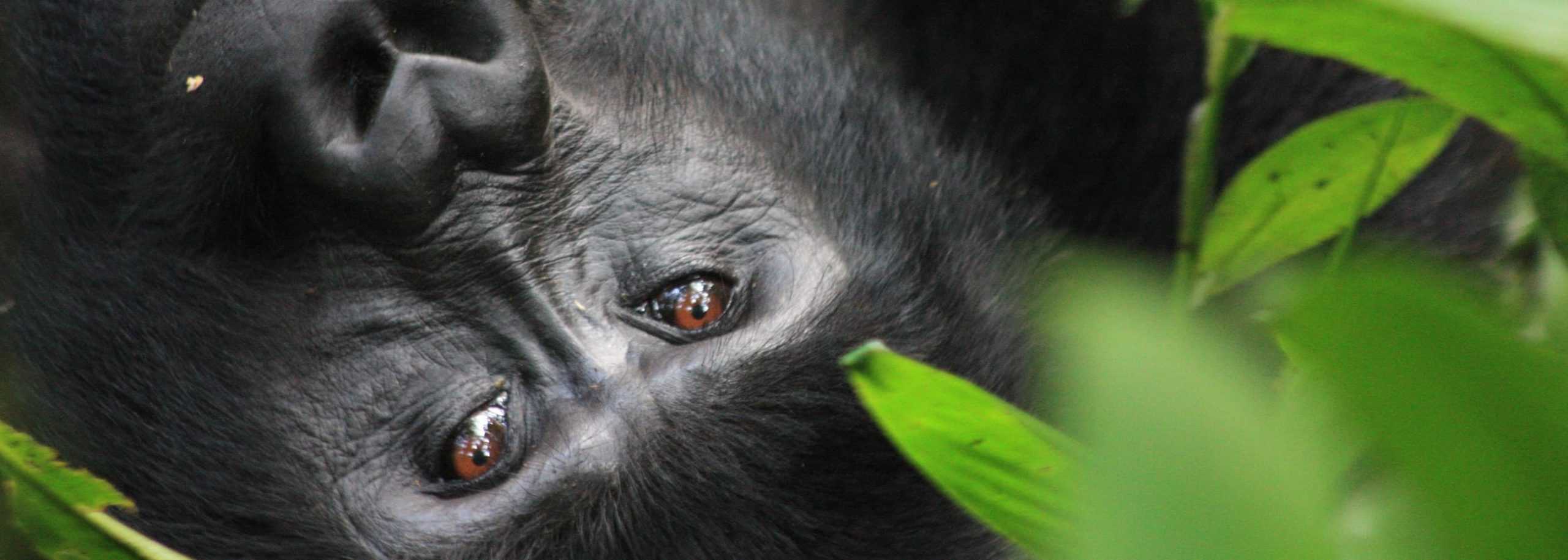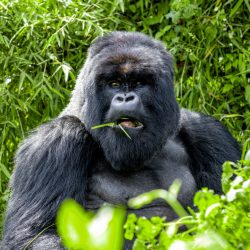IGCP contributes to the International Primatological Society Congress
Blog | 27/09/10
The 23rd International Primatological Society (IPS) Congress has drawn to a close. The theme of this congress was, “Quest for Coexistence with Nonhuman Primates.” During this congress, fruitful discussions and exchange of research and conservation programs on primate species all over the world took place on a broad spectrum of topics. Topics encompassed different domains such as psychology, ecology, behavior, conservation, morphology, genetic, phylogeny, veterinary medicine, animal welfare, cognition, etc. and were presented in different symposiums, oral sessions and poster presentations.
During the congress, IGCP Conservation Scientist Dr. Augustin Basabose (pictured above, right) presented in oral session on the successful model of regional collaboration for mountain gorilla conservation in Bwindi-Virunga landscape. Dr. Basabose was also invited to the Student Affairs Workshop and co-chaired the group on conservation with Dr Anthony B. Rylands of Conservation International and Dr Janette Wallis, Vice-President for Conservation of the International Primatological Society (IPS). “It was a great opportunity to network with students from different countries interested in primate conservation,” he said. “Students from several countries who attended the workshop were very interested in the work IGCP is doing for the conservation of the endangered mountain gorillas and their natural habitat while working with local communities to improve their livelihood.”
The congress was a wonderful mix of scientific and social events. The Congress brought together more than 1,000 delegates from 56 countries. More than one hundred delegates were primatologists coming from the range countries, and students accounted for a number of the delegates.
All together the congress held nine sessions for 301 oral presentations, fifty-seven symposia for 402 presentations which were simultaneously conducted every day and two sessions for 133 poster presentations were displayed over two days. In addition, 12 different workshops were organized during the congress.
The next IPS congress will be organized in Mexico from 13-17 August, 2012. The theme of this congress will be “Primatology’s legacy and future challenges.”
Prior to the IPS congress, Dr. Basabose attended the strategic Planning Meeting of the Section on Great Apes (SGA) of the IUCN/SSC Primate Specialist group. He attended the meeting as one of the 22 members of the executive
committee. The goal of this two-days meeting (11-12 Sept 2010) were to:
- Review what the SGA has achieved during the last past five years (April 2005 – April 2010).
- Discuss ways to increase the impact of the SGA on great ape conservation.
- Outline a strategic plan for SGA activities for the next five years (2010-2015).
As an output of this meeting, the executive committee developed the SGA Strategic Plan 2010-2015 including monitoring and evaluation of activities and impacts.
After the completion of the IPS congress, Dr. Basabose visited some laboratories at the Faculty of Science, at Kyoto University, including the laboratory of primate genetics.
Photo caption: Dr. Augustin Basabose (right) poses with colleagues John Kahekwa of the Pole Pole Foundation and former IGCP staffer Helga Rainer.


